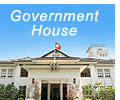
|
Visit to Shanghai (2)I had a tight itinerary for the second day of my visit to Shanghai. In the morning, I attended the opening ceremony of the ULI Asia Pacific Summit, and discussed with professionals from various sectors, including the town planning, architecture, real estate, financial and legal sectors, Hong Kong's efforts and vision in promoting urban development in Asia. Afterwards, I visited the Bridge 8, a creative industrial park which has a gross floor area of about 60 000 square metres. The tenants there are all in the creative and related industries, including quite a number of Hong Kong companies, as well as Mainland, Taiwan and foreign enterprises. The Bridge 8 is not just a real estate project. More importantly, it provides a favourable environment for creative enterprises to survive and thrive and to achieve synergy. The person who conceived, invested in and manages the Bridge 8 comes from Hong Kong and has been working in Shanghai for 20 years. A regular item on my itineraries for my previous visits to Mainland cities has been meeting Hong Kong people living there. This visit to Shanghai has been no exception. At the luncheon hosted by the Hong Kong Chamber of Commerce in China today, I met some Hong Kong industrialists, businessmen, professionals and students living in Shanghai. Apart from sharing with me their experiences of living there, they also raised with me some problems they encountered in doing business in the Mainland, including those concerning the implementation of the Mainland and Hong Kong Closer Economic Partnership Arrangement (CEPA) and recognition of professional qualifications. At the luncheon, I briefed the attendees on how the current-term Hong Kong Special Administrative Region (HKSAR) Government, being appropriately proactive, is working towards its policy objective of promoting economic development at a sustainable and relatively high rate in order to address our housing, poverty, ageing population and environmental problems. I also gave an account of the progress made during my visit to Beijing in April in strengthening Hong Kong's trade and economic ties with the Mainland in six areas, including supporting the National Development and Reform Commission (NDRC) in its interim review of the implementation of the National 12th Five-Year Plan, setting up a joint working group for the implementation of CEPA, and securing the NDRC's agreement to the participation of Hong Kong in the preliminary work on the formulation of the National 13th Five-Year Plan. Before and after the luncheon, I visited YK Pao School, which is founded by Hong Kong people, and the Shanghai Shipping Exchange respectively. To be effective in conducting "nei jiao", or internal diplomacy, we must value the contributions and opinions of Hong Kong people working in the Mainland, and learn and care more about their situation. When I met these people at the luncheon, I encouraged them to do more in two aspects: first, "thought leadership", which means being more active in putting forward proposals and views to the HKSAR Government, and second, "public advocacy", which means expressing their views in public on more occasions so as to gain the support of the Hong Kong community. Hong Kong people working and living in other places are making efforts to expand Hong Kong's economy outside the territory. Although they are not in Hong Kong, they are members of the big family of Hong Kong. The HKSAR Government cares about their needs and attaches great importance to their views. June 5, 2013
|
|||||||||||||||||
|


